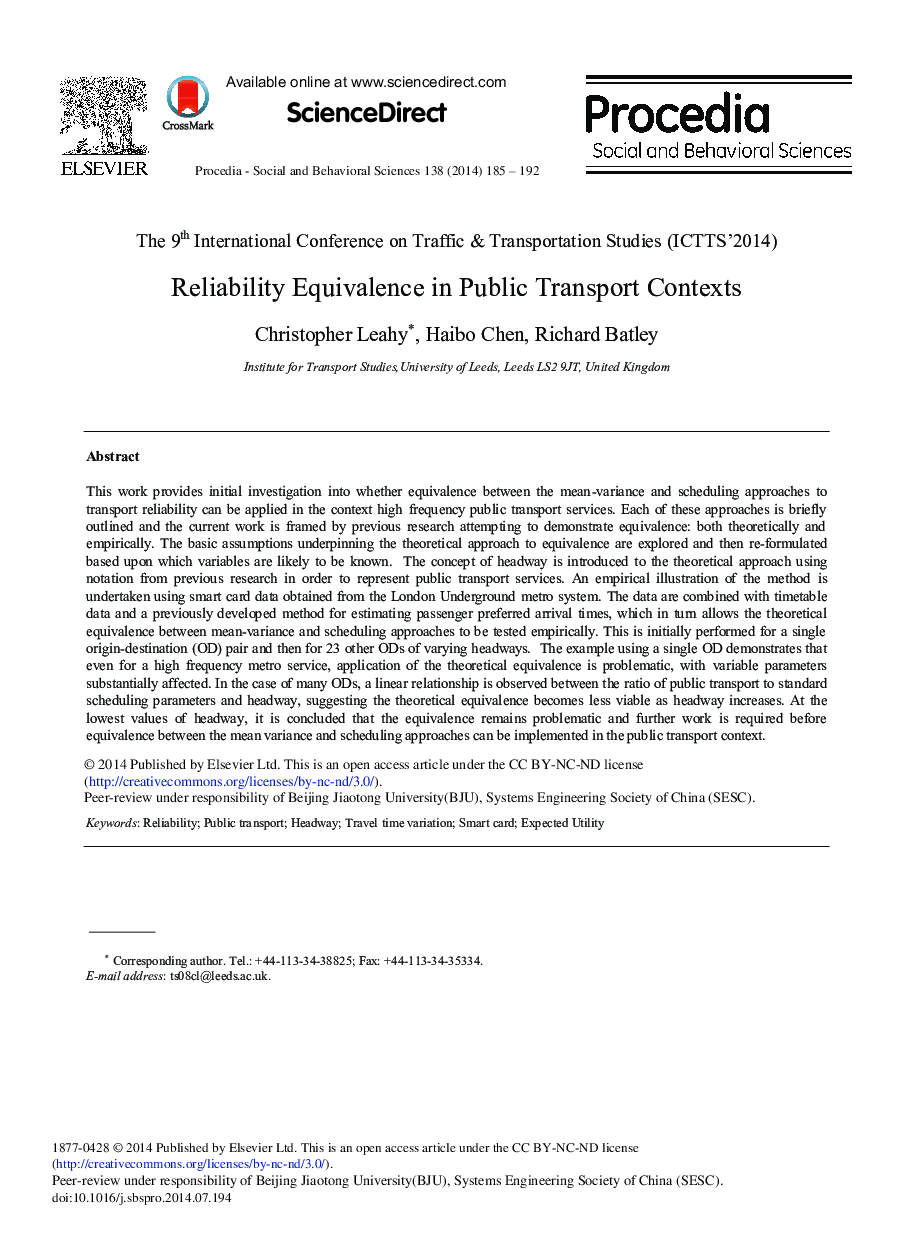| Article ID | Journal | Published Year | Pages | File Type |
|---|---|---|---|---|
| 1114212 | Procedia - Social and Behavioral Sciences | 2014 | 8 Pages |
This work provides initial investigation into whether equivalence between the mean-variance and scheduling approaches to transport reliability can be applied in the context high frequency public transport services. Each of these approaches is briefly outlined and the current work is framed by previous research attempting to demonstrate equivalence: both theoretically and empirically. The basic assumptions underpinning the theoretical approach to equivalence are explored and then re-formulated based upon which variables are likely to be known. The concept of headway is introduced to the theoretical approach using notation from previous research in order to represent public transport services. An empirical illustration of the method is undertaken using smart card data obtained from the London Underground metro system. The data are combined with timetable data and a previously developed method for estimating passenger preferred arrival times, which in turn allows the theoretical equivalence between mean-variance and scheduling approaches to be tested empirically. This is initially performed for a single origin-destination (OD) pair and then for 23 other ODs of varying headways. The example using a single OD demonstrates that even for a high frequency metro service, application of the theoretical equivalence is problematic, with variable parameters substantially affected. In the case of many ODs, a linear relationship is observed between the ratio of public transport to standard scheduling parameters and headway, suggesting the theoretical equivalence becomes less viable as headway increases. At the lowest values of headway, it is concluded that the equivalence remains problematic and further work is required before equivalence between the mean variance and scheduling approaches can be implemented in the public transport context.
